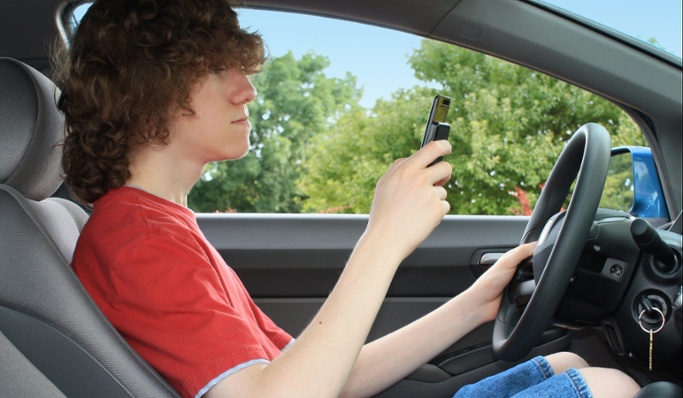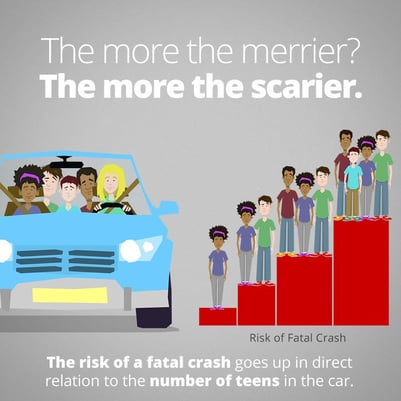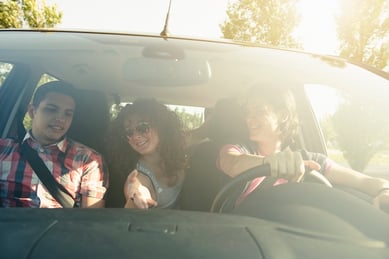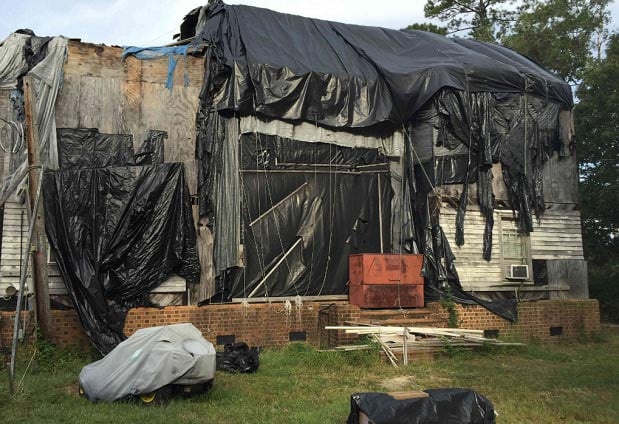
Fall brings unique challenges to teen drivers due to the start of the school year, Friday night lights, and homecoming season. While things may look quite different this year and many activities for your teen are canceled, they can still be vulnerable as they learn to navigate Virginia's roads. NHTSA's Teen Driver Safety Week reminds parents of the importance of conversations with their teens about rules they need to follow to stay safe behind the wheel. The greatest dangers for teen drivers include alcohol, inconsistent or no seat belt use, distracted and drowsy driving, speeding, and passengers' number.
Parents and Passengers
I trained all three of my kids to drive with Stafford County Public School's driving program. From white-knuckled trips as copilot to watching my kids back out of the driveway by themselves for the first time, I don't think anything was as challenging as enforcing provisional license passenger restrictions. And nothing as dangerous if I didn't.
The U.S. Department of Transportation has declared vehicle crashes as the leading cause of death for 15 to 18-year-olds. Their research found a teen's risk of being killed in a crash doubles with two passengers under 21 and quadruples with three or more under 21 passengers.

Our car insurance team sometimes witnesses the unfortunate details of teen traffic crashes when assisting our members and their families with auto claims. To protect our young drivers, parents need to stick to all of Virginia's new driver rules and guidelines. But we know there's one rule that's key: Passenger restrictions.
The details of the VA law are specific and can be a bit confusing. It's easy for parents to forget exactly how to enforce them! So, let's break it down.
Passenger Restrictions for Provisional Licenses
Here is Virginia's law regarding passenger restrictions for teen drivers:
1. If your teen driver is under 18, only one passenger under 21 is allowed during the first year of their driver’s license, unless a parent (who is a licensed driver) is in the seat beside them.
2. After successfully holding a license for one year, and until your teen driver turns 18, up to 3 passengers under age 21 are allowed in these situations only:
- When driving to or from a school-sponsored activity
- When a licensed driver who is at least 21 years old is in the seat beside you
- In cases of emergency
Passenger restrictions do not apply to family members.

It makes good sense, right? So, we shouldn't make enforcing these restrictions difficult for others by being the cool parent.
It can be rather inconvenient at times, I know. When my son was driving, it seemed like there was always one extra kid that needed a ride home from soccer practice. Or my daughter would need a ride in a car that already had another passenger.
I took on being the bad guy and said, "no." I knew everyday hassles or my kid's persuading should never influence me to follow anything less than what Virginia law requires because my gut told me it was best for my kids.
After these restrictions expire, your son or daughter's maturity should determine the number of passengers you allow while driving or riding with a friend. They may be kids just being kids, but if you're not sure about your teen's behavior or their friends while driving a car, you may want to hold off on numbers of peer passengers a little longer. This includes the times when your teen is the passenger.

We even recommend not letting them ride with any teen driver with less than one year of driving experience. Also, give your teen an easy way out of an unsafe situation with a code word. Agree on a word or phrase that they can text you and you will go pick them up immediately, no questions asked.
Other Risks
Passengers aren't the only danger to your teen's driving safety. In Virginia, 62 percent of those teen drivers that lost their lives in 2015 weren't wearing seat belts. Other risk factors for teens included distractions -especially texting and speed.
Distractions
Virginia's hands-free cell phone law prohibits the use of cell phones while driving, regardless of whether a device is or is not hand-held. You can only use a cell phone or any other telecommunications device for a driver emergency, and the vehicle must be lawfully parked or stopped.
Parents have to lead by example and never driving distracted. And talk with your young driver about distractions and all of the responsibilities that come with driving a car. Everyone in our family signed the pledge to commit to distraction-free driving. I regularly reminded my kids that a violation of distracted-driving laws could mean a delayed or suspended license.
Speed
Teen fatalities related to speed have almost doubled the numbers of overall fatalities in Virginia, with 63 percent of those killed due to running off the road. These horrible statistics serve as stark reminders to keep the safety conversations going even after your teen has their license. We're sharing a great video below from the smart folks at IIHS that every parent should take the time to watch with their kids.
The Bottom Line
Enforce those critical passenger restrictions every single time. Talk to your teen regularly about driving safety expectations and make sure they always buckle up. Take away driving privileges when necessary. And always model good driving habits for your kids, even when they're little. Then they will know what it looks like to drive safely.
Learn more about car insurance in Virginia
THE NORTHERN NECK INSURANCE INTEGRITY PROMISE — We pledge to provide straight talk and good counsel from our NNINS Virginia insurance experts through our blog. While we hope you find this to be a helpful source of information, it does not replace the guidance of a licensed insurance professional, nor does it modify the terms of your Northern Neck Insurance policy in any way. All insurance products are governed by the terms in the applicable insurance policy.




